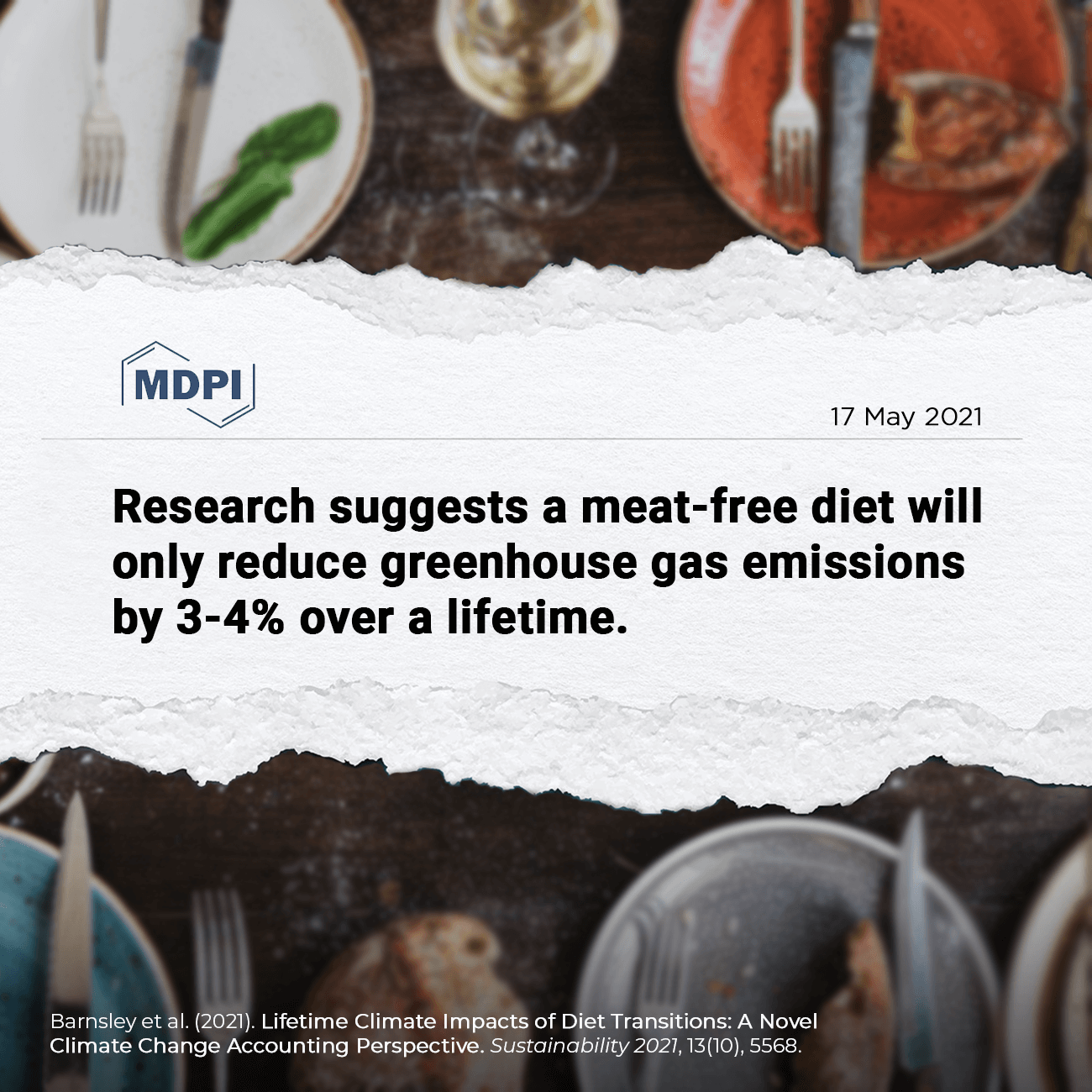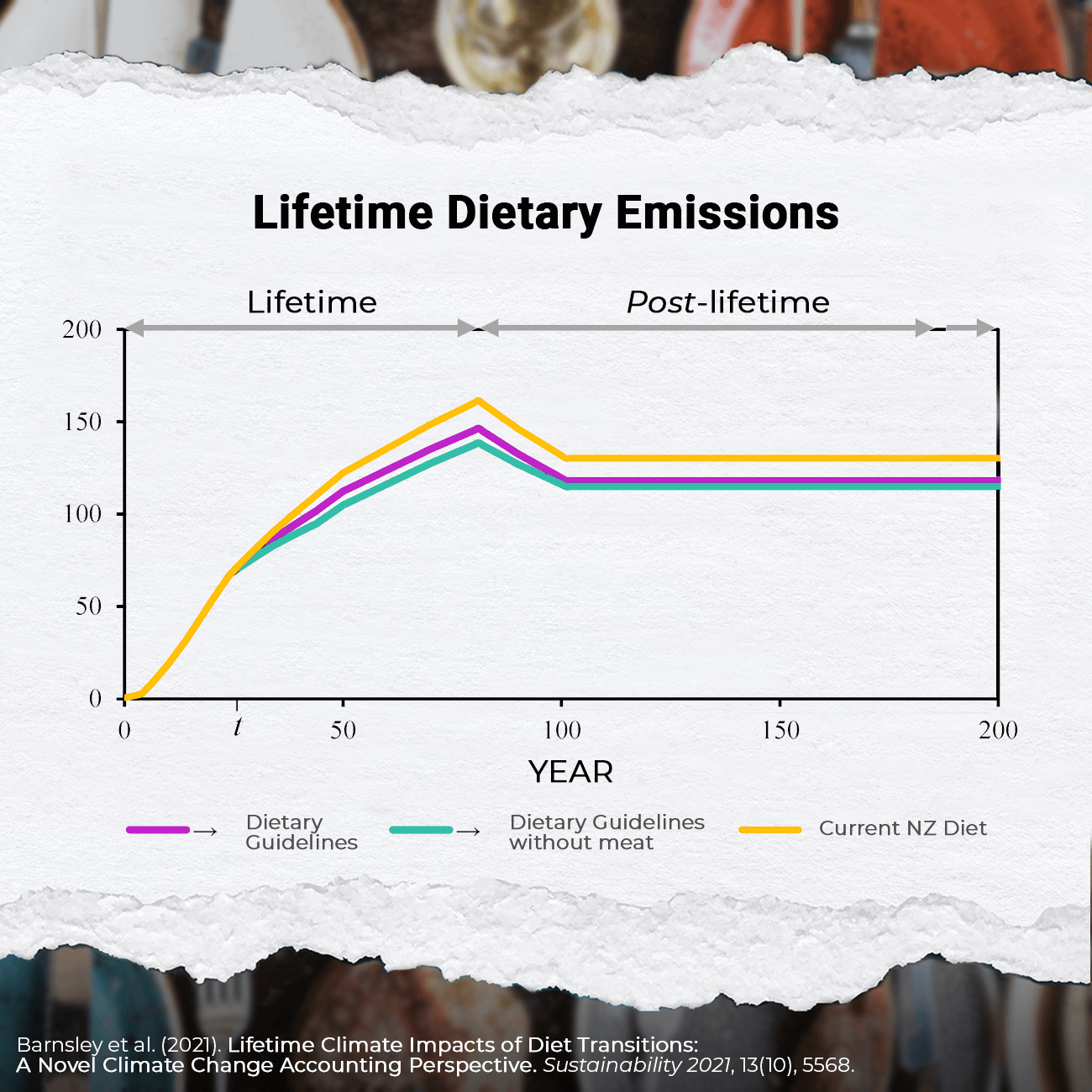Research suggests a meat-free diet will only reduce greenhouse gas emissions by 3-4% over a lifetime
Independent research by some of the world's leading scientists shows the climate change benefits of substituting meat from the average New Zealander's diet would only lead to a 3-4% decrease in an individual's lifetime global warming impact from all activities. Substituting meat could also risk individuals missing out on key essential nutrients such as iron.
This new research was developed by climate, nutrition and environmental scientists from the University of Oxford, Massey University, University of Auckland, the New Zealand Agricultural Greenhouse Gas Research Centre, the Riddet Institute, Victoria University of Wellington and the Ministry for Primary Industries.
Removing meat from the diet is often heralded as a silver bullet to solve climate change. However, methane is a short-lived gas, whereas carbon dioxide is long-lived and, therefore, accumulates in the atmosphere.
Cutting meat out of the diet offers greater benefits for the climate in the short-term, but over the long-term, most of these benefits reduce because the accumulation of carbon dioxide created by the alternative foods people would eat, and the eventual removal of methane over the rest of their lifetime.
Fiona Windle, Head of Nutrition at Beef + Lamb New Zealand Inc says "We welcome this research because it assesses dietary impact within the context of lifetime emissions and suggests that 'meat-free' is not the silver bullet it is often made out to be."
“Whilst current environment footprint studies do not usually take into account the nutritional composition of foods, this paper highlights if you eliminate meat from the diet, then you are more likely to miss out on key nutrients such as iron, which is of great concern when we already have an iron deficiency challenge in New Zealand.”
This study helps to better understand the impact that emissions of short-lived gases such as methane have on the global temperature.
The research paper can be found here.



